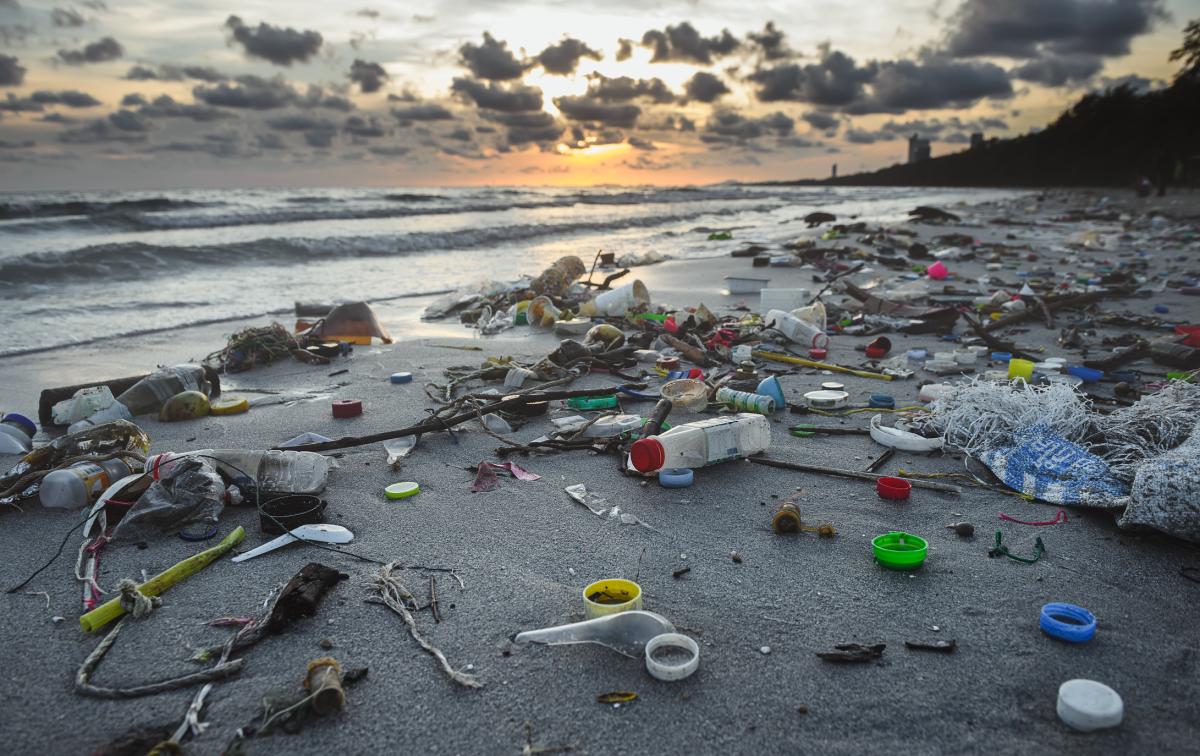By Shreekant Daga, CAIA, CFA, FRM, Associate Director and Authorized Signatory for CAIA India LO.
Pollution is a by-product of economic activity and while there is consensus that there needs to be a check, who does what is often a debatable point. Some countries point towards aggregate caps basis per capita emissions, some towards emissions linked to size of land mass or GDP, and a recent school of thought relates to an inverted scale of income and GDP on a per capita basis since these locations need to receive the most liberal norms for global equality equilibrium to be reached.
Now while there is an angle to each of these ideologies, and we discuss what needs to be adopted, are we missing the moot point on how do we capture pollution and the responsibility?
Of the several movements to protect the environment, movement against plastic usage is fairly old and has been well documented. As an anecdote in pollution lets dive into what studies state on plastic waste and mismanagement.
As per data presented in Science Advances Journal as of 2019, India contributes the most to mismanagement of plastic waste. India is followed closely by China. It is estimated that 'Chindia' contributes close to 41%, having 36% of global population. Particulars from the study alongside World Bank macro data as on 2019 is below.
Source: www.science.org (Science Advances); data.worldbank.org (2019 Population, 2019 Per Capita US$ Current)
An outlier to this list is North America, which is the only region (country) which as a proportion to its population records lesser mismanaged plastic waste. Global per capita as per, the timeline (2019) for the study stood at $11,408. Basis the table, North America is again the only region (country) which has a per capita at (far) more than the global average.
Now on a contrast, a study was conducted by www.breakfreefromplastic.org (BFFP) which focused on corporations and not the location of the waste. Ground audits events were conducted in 55 countries across 6 continents with the help of close to 15,000 volunteers. 63% of waste collected was identifiable with a clear consumer brand.
Top polluting companies for 2020 with their countries of origin are as follows:
The results provide a stark contrast. The biggest polluting companies come from countries which are labelled to be insignificant global polluters. Often these companies do not produce/pollute in their home countries but rather in a country with a weaker waste management practice. They would open a subsidiary company in the country of production and accounting and accountability would now sit in these lesser developed/ developing countries.
Additionally, several rich global polluters ship their waste overseas. Recorded estimates put the domestically produced plastic waste exports between 5-20% for the several developed countries. These percentages may seem small but note that these are recorded estimates and ports handling waste management activities have often pointed to under-reporting and non-reporting in cases where ships have been sent for breaking or carrier transfers.
As long as economics is a science, it will point out that economic activity leads to pollution, be it plastic or otherwise. With countries signing the COP27 memorandum of change and the commitment towards net zero, the world should not fail as the outlet for production moves. The act of measuring and manging the responsibility will lead to division of thought and action. The physical barriers created are artificial for nature and it is only a passage of time that problems in a location become problems in several other locations. There are elements which bind us all together and unify our sense of purpose. Taking cognizance and conscience of needs and empathy will go a longer way then posturing of hard rules. Where there is a will there is a way, and the will should not be to focus on the rule but rather the spirit of the rule. As an exception, focusing on the end result desired by each entity will go a longer way than focusing on the process since the process would end up centering on who and how much which can never be precisely measured.
About the Author:
Shreekant Daga is a CAIA, CFA and FRM charter holder. Shreekant pursued Bachelor’s in Management from Narsee Monjee College and later did his Master’s in Management from Jamnalal Bajaj Institute of Management Studies (JBIMS). He also holds a Master’s in Commerce from Mumbai University. He is an alumnus of Bombay Stock Exchange Training Institute, having completed the certificate program on capital markets. He has also acquired several certificates from the National Stock Exchange in Financial Markets.

Prior to joining CAIA Association, Shreekant had gathered experience in Structured Finance. His experience encompasses investment banking in debt capital markets, handling stressed assets, global RMBS deal evaluation, securitization, stress assets rating and mutual fund rating. Shreekant has worked with organizations such as ICICI Bank, Deutsche Bank Group and India Ratings and Research (Fitch Ratings). In mid-2018, he joined the Chartered Alternative Investment Analyst (CAIA) Association, the international leader in alternative investment education and provider of the CAIA designation, as Associate Director at India liaison office wherein he looks after India operations.
Shreekant has been a visiting faculty at JBIMS and has taught subjects such as Fixed Income, Global Markets & Financial Institutions and Structured Finance. He has been involved in mentoring students at his alma mater for their year-long projects. He has also graded final year MSc students of Mumbai University on their year-long projects. He has also featured in newspapers, magazines, press releases and article on the web. His name also features on the list of educational professionals on the MHRD website. True to the cross function that he maintains with education and industry, Shreekant has 4 research papers presented and published at international forums and journals respectively.




